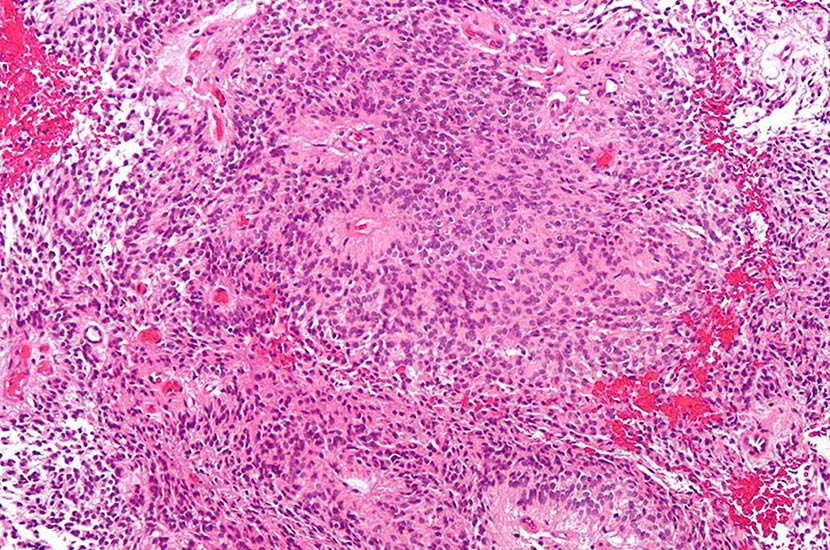Epigenetic Biomarker Predicts Outcome of Childhood Brain Cancer
By Gerald M. Slutzky, PhD
Posted on 07 Dec 2016
Cancer researchers have identified a biomarker that predicts the likely outcome of the childhood brain cancer posterior fossa ependymoma (PF).Posted on 07 Dec 2016
This type of cancer is characterized by tumors found largely in the hind brain (consisting of the cerebellum, pons, and the brainstem) of children. The prognosis of these tumors does not necessarily correlate with clinical characteristics or even tumor grade, and there are no recurrent genetic mutations that can be used to classify these tumors.

Image: A micrograph of an ependymoma (Photo courtesy of Wikimedia Commons).
An international team of researchers led by investigators at Children's Hospital Los Angeles (CA, USA) and the University of Michigan (Ann Arbor, USA) searched for other markers that might be used to classify PF tumors. To this end, they focused on the epigenetics of ependymoma tumors, specifically on the methylation pattern of histones in the tumor cells.
The investigators reported that most PF tumors lacked methylation of histone H3. Approximately 80% exhibited loss of the H3K27me3 biomarker, while 20% of tumors retained H3K27me3. By linking H3 methylation to clinical outcomes, the investigators showed that H3K27me3 immunostaining served as a biomarker for poor prognosis and delineated radiologically invasive tumors, suggesting that reduced H3K27me3 may be a prognostic indicator in PF ependymomas.
"Detection of H3K27me3 by immunohistochemical staining is a widely available and cost effective surrogate molecular marker. This test can be readily implemented in most departments of pathology and provides a much-needed tool to risk stratify and identify ependymoma patients who would potentially benefit from epigenetic therapies," said contributing author Dr. Alexander R. Judkins, head of pathology and laboratory medicine at Children's Hospital Los Angeles.
"By demonstrating the epigenetic mechanism - that we theorize likely goes awry during brain development - we will be better able to identify these tumors, determine a more accurate prognosis and - importantly -perhaps develop better therapeutic options," said senior author Dr. Sriram Venneti, professor of pathology at the University of Michigan.
The study was published in the November 23, 2016, online edition of the journal Science Translational Medicine.
Related Links:
Children's Hospital Los Angeles
University of Michigan












